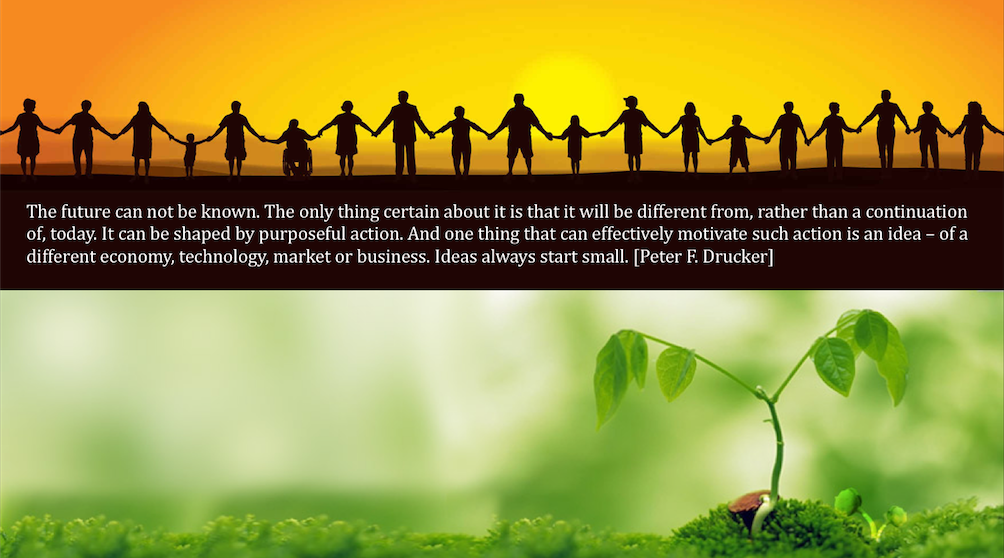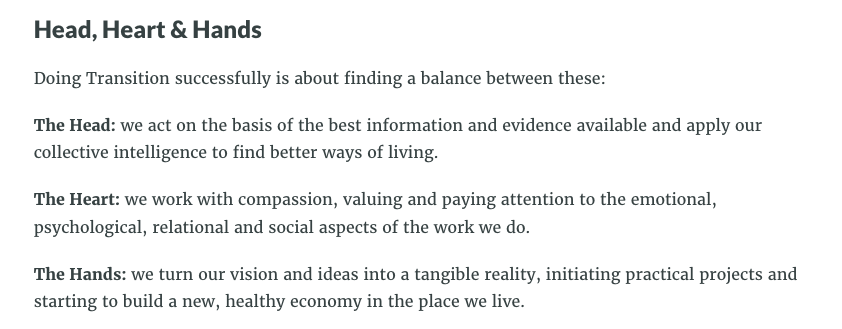Dion manages to turn the film into a positive vision for our species' future despite all the negative messages by interviewed experts. Tony Barnosky, Harvard paleontologist tells us at minute 4:00 that we don't have a lot of time, maybe 20 years to move things into the right direction. Belgian law professor and UN rapporteur Olivier de Schuetter explains at minute 30:25 that small scale farming could solve all problems of food production and environmental degradation, but nothing changes because governments listen to powerful corporations. American essayist Jeremy Rifkin enlightens with a very eloquent interview the effects of global warming, how it changes the water cycle on planet Earth and why we face the 6th mass extinction by 2035. It is though Mary Clear and Pam Warhurst from the Incredible Edible movement in Great Britain's Todmorden who seems to have at minute 16:50 the very central answer to all the problems humanity faces: “That's all the future needs; more people connecting with each other; food and conversation is the answer.”
On this note, a kind warning to the US film industry, which churns out year after year increasingly dystopian movies, making itself an accomplice of destruction. Huge budgets are allotted to fill our minds and hearts with narratives of destruction and narcissism. The 2017 blockbuster Ghost in a Shell, featuring Scarlett Johansson, just to name one of many examples, was produced for a whooping USD 110 Million; but the L.A. metropolitan area has no functioning public transportation system, permanent traffic jams, an antiquated electricity network, no high speed long distance railway. The highly productive US film industry reflects that a society, which once was a manufacturing powerhouse, has slid into a virtual void. Instead of building state of the art infrastructure, it designs negative delusions; instead of building our homes and caring for our people, we spend our hours on Netflix, HBO and gaming.
We watched the documentary Demain in combination with with climate scientist Alice Bows Larkin's TED talk on how we have to adapt to climate change or paleontologist Kenneth Lacovara's TED talk on the sixth mass extinction. Demain is in China online available with Chinese subtitles on the streaming platform bilibil. Highly recommended.
Further reading:


